When FOF decided to launch a section on Lifestyle Coaches, we approached The Coaches Training Institute about a partnership. One of the premier coach training institutes in the world, CTI’s exclusive Co-Active approach is considered by many to be the profession’s gold standard.
Once you read our thought-provoking interview with Karen Kimsey-House, below, you’ll be tempted to sign up for CTI’s Fundamentals course. I am planning to do exactly that. See for yourself!
—Geri Brin
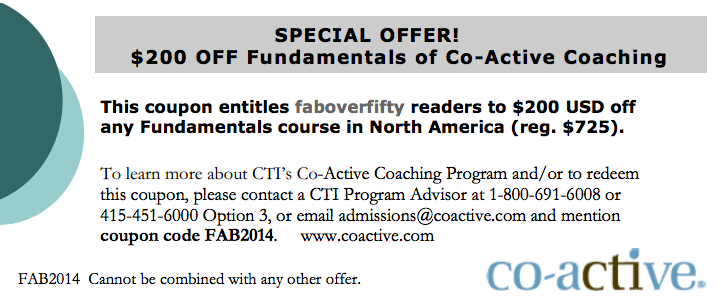
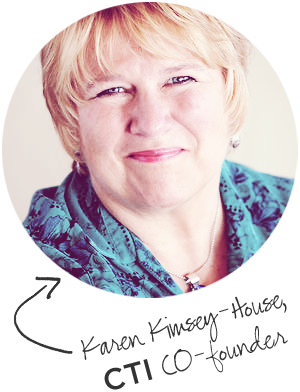
What’s the history of CTI?
We started CTI in 1992, the year after I married. I was in my early 40s. My husband and I both came from the world of the theatre. I was an actress. When I was 38, I began to want more stability in my life and to transition into a more professional career. So I started an adult educational learning company right here in San Francisco, called The Learning Annex. That’s where I met one of my partners, Laura Whitworth, who became one of the founders of CTI and who has since passed away. I met my husband, Henry House, through Laura. He was the third CTI founder.
What was the status of coaching in 1992?
Coaching, as we know it today, did not exist. There was some work inside organizations for executives. If they hired an executive coach for you, it was because you were on your way out or were in trouble. Coaches didn’t exist for the masses or individuals.
What caused the emergence of coaching as it is now?
We had just come out of the 80s and the human potential movement was alive and well throughout the world. Family therapy had become a wildly accepted way to look at one’s life and deal with patterns and behaviors. As a people, we were ready to look forward and to be able to use ourselves in the service of something greater. Other modalities, such as teaching, mentoring and therapy, didn’t really provide the kind of dynamic environment that coaching provided, for people who wanted fulfillment so they could make a difference in the world.
What was it within you that made you want to do this?
When you have a career in the theatre, you’re always doing something else the majority of the time so you can be available to be cast in things the minority of the time. So I did lots of other jobs, including counseling, precursors to coaching. I was passionate about empowering people and helping them become clear about what they wanted to have happen in their lives.
As we began to meet with clients, we started to create a framework for working with people in a way that I always longed to do. I hear from people all the time who come to CTI: ‘I’ve been doing this all my life, wanting to work with people this way all my life, but I needed a structure, a framework, to put around it.’
We started CTI in a very humble way and didn’t have the vision to create a global organization or even to kick off a whole profession. We just loved the work we were doing. Some of our clients asked us to teach them the skills that we were using with them. By word of mouth, it spread rapidly, first throughout North America and then globally.
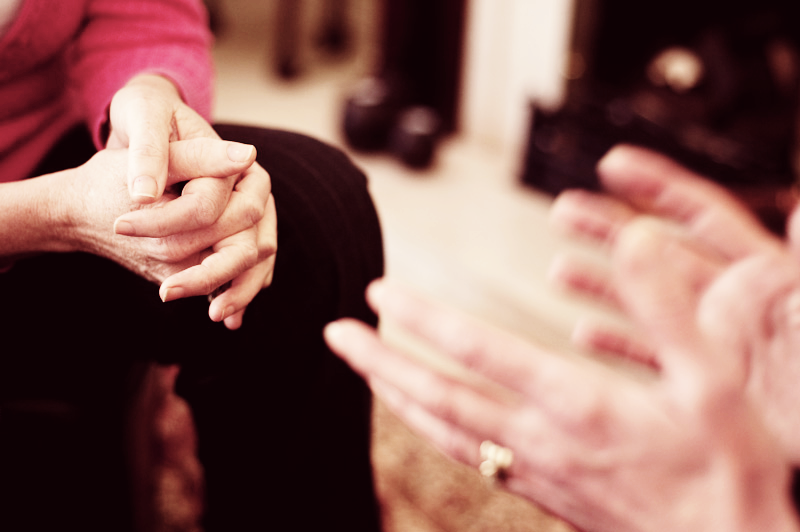
What is your definition of coaching?
Professional coaching is so popular that it’s become somewhat commoditized and it’s sometimes hard to know what people mean when they talk about ‘coaching.’
In “Co-Active coaching,” which is our approach, we train our coaches to create a relationship that supports the individual client at looking deeply at the different areas of her life and making choices that are based on what’s most fulfilling, rather than on what’s the most expedient or what others expect.
Coaches don’t counsel, advise or offer therapy. The coach is more like a tool and holds a certain kind of conversation for the client. Life is very fast and can become quite overwhelming and the things that matter the most to us aren’t always the ones that are calling all the time. A coach helps you hold the focus on the real priorities.
What kind of woman most benefits from coaching and what kind of woman makes the best coach?
I always love the response my husband gives to this question. To paraphrase, he says great coaches need to have two qualities: Be wildly fascinated by the human experience and by the range, variety, dimension and complexity of people. Women are particularly well geared for that. We also have the heart and the capacity to hold the whole of somebody, without judgment and without needing to push them forward. We have the capacity to just be curious and to approach conversation with an open heart. Great clients also are wildly curious about their own experience and are hungry to learn and grow and are as interested in the process as well as in the results.

If a woman is going through a tough time in her marriage, can coaching help her?
Totally. We believe that all of the challenges of life are opportunities for us to learn and grow. A coach will support this woman through a difficult transition, in looking at herself, at what’s important to her, at what she can learn from everything that’s happening for her.
What’s the line between needing to go to an analyst and a coach?
I am going to speak really generally because there are so many different kinds of therapies and I have respect for the profession. When someone finds they have entrenched, chronic patterns that repeat themselves over and over again, and from which they’re unable to free themselves, it’s time to put themselves in the hands of an experienced, highly trained therapist.
By and large, most of the emotions and the challenges we face in life aren’t repeated, chronic and entrenched patterns but are just difficult things that happen for us. I’ve worked with some wonderful therapists who have helped me heal wounds of the past. But just because we’re having feelings doesn’t mean we need therapy. However, the best therapists ask great coaching questions and great coaching is definitely healing in nature.
How does Co-Active coaching differ from other coaching models?
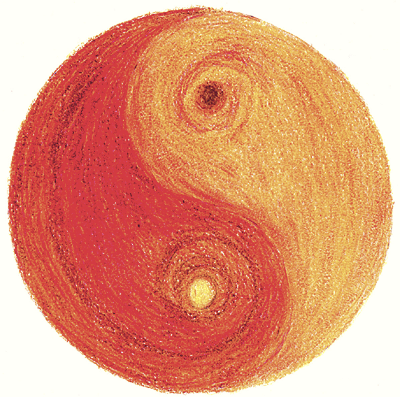
There are as many approaches to coaching, as there are in therapy. What’s unique about Co-Active coaching is that it focuses on the interaction between our being (essence) and our doing (action.) It’s wonderful to want to produce results, to get things done, but Co-Active coaching focuses deeply on the essence of the person who is getting all these things done. It becomes more than just an objective to produce results; it becomes a transformative process so the client is able to think, evolve and grow.
Co-Active coaching is the interplay between the being and the doing. There are many ancient symbols that reference this interplay between the two energies; the Yin-yang symbol, for example. Co is essence, being, potential and mystery. Active is results, action, pointing and direction. We’ve lost a little bit of our relationship with that essence, that being part, and we’ve become quite driven, immediate, now focused and results oriented. Co-Active coaching starts to balance these two energies and move them both in equal measure.
Tell us about CTI’s relationship with something called the Institute of Coaching.
The Institute of Coaching is affiliated with the McLean Hospital at Harvard Medical School. Its mission is to support, store and make available research about the efficacy of coaching to the profession. Of course, CTI wants to support that since coaching is still a new and emerging profession. We want to empower and celebrate this kind research as much as we can since it helps nourish and grow our profession to become more credible and more established. My husband and I aren’t scholars, so we gain a great deal from The Institute’s research on the impact of coaching on the brain, on brain chemistry and on leadership, as well as on the relationship between positive psychology and the brain.
The Institute of Coaching doesn’t espouse any single coaching model. It’s non-denominational. It’s about research. I will say that the Institute has declared that our Co-Active coaching model is remarkably congruent with a vast body of research in positive psychology and coaching. They are excited to see how the entire field can be uplifted when science and theory is connected with the spirit and practice of coaching. They also believe that results will continue to show how science can be mapped to our Co-Active model and our four cornerstones of coaching.
Please tell us about your training program. Does everyone have formal certification when they graduate from CTI?
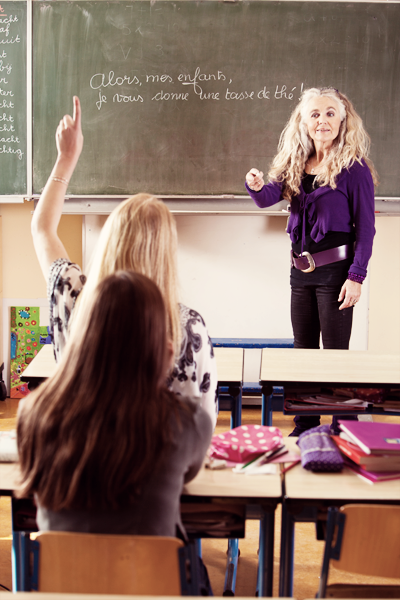
Our training program has three different levels, so people will be able to choose what they think is going to work best for them. People are coming to CTI from all different walks of life, for all kinds of needs.
- Some are looking to pursue a career as a professional coach. I would strongly encourage certification for this group.
- Some are looking for the skill set of coaching that they can use in their profession to increase their professional success. They might be managers, teachers or nurses, for instance.
- A third category of people wants to improve their ability to be in good relationships and communicate well with the people in their life.
Please explain the three levels of the CTI program.
The Fundamentals Course, a two-and-one-half day program, is an introduction to our approach, to our model. It provides a solid overview of Co-Active principles so that people have a chance to get familiar with Co-Active coaching and experience our unique, experientialapproach to learning. This is a great place to start.
The Intermediate Series (pre-requisite is Fundamentals) consists of four in-person courses, each three days long, taken sequentially.
Certification is a telephone-based, virtual program. Over 50 percent of our students matriculate into certification. Certification opens doors and is highly respected by many coach brokers, who hire coaches to work within organizations.
It takes about a year to go from the beginner’s course through certification. It’s not a full-time program; most courses are given on the weekend so you can work full time and study coaching. It’s important for coaches to be well trained.
What is the cost of the Fundamentals course and where is it offered?
In North America, the cost for the Fundamentals course is $725USD for this 2.5-day program, not including hotel and meals. It’s offered in most major cities in the United States and Canada, and in some international locations, including the UK and Singapore. Pricing for the other courses in the series depends on the package that is chosen. (Click here to read more.)
What distinguishes CTI most from others in the field?
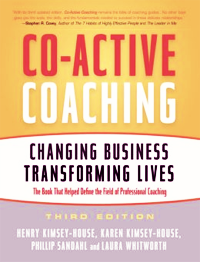
Partly our longevity! CTI is over 20 years old. We train more new coaches every year than any other school. And our certification program is recognized as one of the most rigorous in the industry.
Our book, Co-Active Coaching: Changing Business, Transforming Lives, now in its third edition, is foundational in the coaching profession; it’s been the predominant text for learning coaching.
The International Coach Federation’s certification was modeled after CTI’s certification program. Coaching is being taught widely in many colleges and universities around the world, where our book is being used.
Does ICF certify coaches?
It’s complicated. Technically, no, ICF holds the “publicity and the credibility of the profession.” It offers a Portfolio Certification, which certifies a combination of training in different coaching schools, rather than training all at one school. It’s a generalized approach.
Training programs become certified to the ICF. CTI is an ICF-certified school. If you’ve gone through the CTI certification program, you have what you need to apply to ICF for certification. One doesn’t need additional training to be certified through the ICF. It’s administrative, actually.
What should resonate with us when we look for a coach?

I would recommend doing sample sessions with at least three different coaches. It’s an intimate and very personal process.. Sometimes there’s a match and sometimes there’s not. The coach and the client are both interested in making sure the relationship is a good fit. If it doesn’t seem to be a good fit, one CTI coach can recommend another CTI coach.
Many coaches offer online consultations. Are these as good as in-person consults?
Coaching is particularly well suited to working over the telephone. My listening is sharper on the phone. I like to keep a diverse client base and the phone opens up the world to me. But one approach isn’t better than another. Some coaches prefer working in person.
How many faculty members at CTI and how many have taken the CTI program?
We have about 180 faculty members across the world. Over 44,000 have taken CTI courses and almost 7,000 are certification graduates.
Why should FOFs think seriously about coaching, either as a second career or for personal reasons?

Women ages 45 and up are at a transition point in their lives. They may be looking for a second career or they may be looking for self-awareness about what’s next – whatever that might be. They might want to gain some new connections and relationships – whatever the motivation, CTI is a great community and a great organization to be connected with.
The Fundamentals course does much more than teach coaching skills. It helps an individual to listen deeply and learn to ask really good questions, to acknowledge the saboteur thoughts that may be holding them back from being all they can be, to look at the world with curiosity and without judgment. This two-and-a-half-day course alone can be transformational for participants – transforming their relationships with their families, with their work and even with themselves. To this day, I still marvel at the power of this model and how people around the world have embraced it as both a lifestyle, a skillset and a high form of human connection.
For more information on CTI
please contact Jill Schichter at
(519) 573-0920 or js********@******ve.com


2 Responses to “FOFace-to-Face with Karen Kimsey-House, Co-founder of The Coaches Training Institute (CTI)”
Tammy L Hibler, CPCC says:
The “positive ripples” Mike mentioned echo in my heart as Co-Active changed my life for the better (family, relationships, work) and I now get to do the same with so many other women then the “ripple” continues to these women in their families, community and workplace as we become leaders of our own lives. The Co-Active model goes “deep and in leaps”. Thank you Karen and the CTI family!
Mike says:
As one who has benefited tremendously from and passed on the gift of Co-Active principles, I can attest to the enormous impact Karen has made in this world. The positive ripples of her pioneering work are astounding.